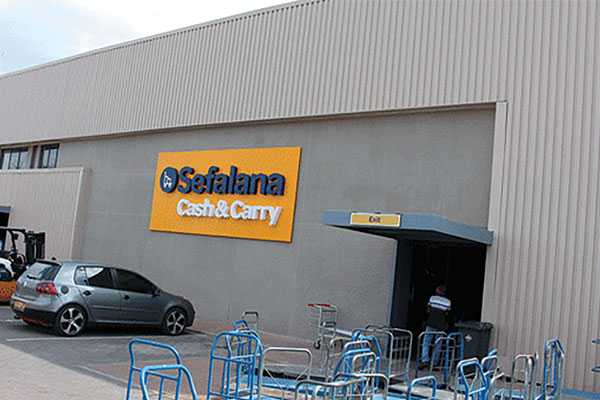Sefalana optimistic despite difficulties
Sefalana Group Managing Director, Chandra Chauhan said they remain optimistic as the economy shows signs of recovery over the next 12 months. The group continues to experience difficult trading conditions as government and consumer spending remain low and cautious respectively.Reporting on Sefalana 2018 annual report, Chauhan said during the year they experienced increased pressure on margins in both wholesale and retail operations as the overall profitability fell significantly.
“Efforts are being made to limit the impact of these pressures as we anticipate restored market conditions and improved results in the ensuing year,” said Chauhan.However, the group has opened four new stores in the year, increasing the total number of stores in Botswana to 55. Chauhan said they had taken a cautious approach to new store openings over the last three years as they recognized the saturation levels in the market and have tried to avoid increasing the overhead costs.
He said the group focus would continue to be on core segments that generate strong returns. “We identified the need to expand into the region and have successfully done this through a careful and cautious expansion plan into three countries over the last four years,” he said.
He pointed out that they are optimistic about the new operations in South Africa and Lesotho. “We are also growing our retail business and establishing a strong presence in the local market as we are now increasingly becoming the store of choice in the Botswana market. Currently the group has embarked on overhead cost reduction program and renegotiated input prices with service providers.
The group business includes, fast moving consumer goods, manufacturing, beverage, milling, beverage division and trading. The manufacturing business segment is heavily dependent on government tenders and the delays in government tenders have negatively affected the business. The segment contributed five percent profit and nine percent to the group turnover in the year.
The group announced that it will commence manufacturing of juice in 2018 after the modification of the site in Ramotswa.Hong Kong is banning alternative smoking devices - the latest setback to the tobacco industry’s efforts to find growth markets as cigarette demand shrinks worldwide.In a surprise reversal, Hong Kong will impose a ban on e-cigarettes, a next-generation category of smokeless tobacco products, chief executive Carrie Lam said in a policy address on Wednesday.
Hong Kong joins at least 27 countries that have banned next-generation smokeless devices, heeding advice from the World Health Organisation. The products have come under fire from health officials across the globe because of concerns about their appeal among youth. The backlash is bad news for tobacco companies, which are investing billions of dollars in developing products that could move the industry beyond cigarettes.
“Without doubt, the tobacco industry is strong at lobbying,” Lam said at a briefing after her address, adding that she’d received 3 000 letters this year against an e-cig ban. “But we have to do what’s right for young people’s health.” A legislative proposal this June had outlined regulating e-cigarettes the same way as conventional tobacco in Hong Kong, including restricting their sale to minors, and prohibiting advertisements and sponsorship.
“It’s unfortunate that the government decided to reverse its earlier balanced decision to allow and regulate these products in line with the international trend,” Philip Morris International said in statement on Wednesday. “We firmly believe that concerns regarding youth access can be better addressed through appropriate regulation and education.”
Tobacco makers were looking to Hong Kong as a potential market for alternative devices. Philip Morris said it doesn’t sell any of its new tobacco alternatives in Hong Kong, while Japan Tobacco said it only sells paper cigarettes in the territory.“A full ban of e-cigarettes will only make black market business more popular, not help to protect teenagers under 18 years old and consumers,” the Coalition on Tobacco Affairs, an industry group, said in a statement on Wednesday.
It added that none of its members is selling e-cigarettes or heat-not-burn devices in Hong Kong. Japan Tobacco investors were unfazed by the news. Shares closed with a 1.2 percent gain in Tokyo on Wednesday. The stock is down 19 percent this year, while Philip Morris shares have tumbled about 27 percent from a peak last October.






